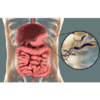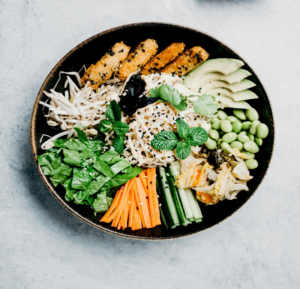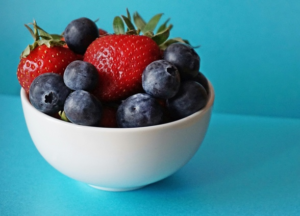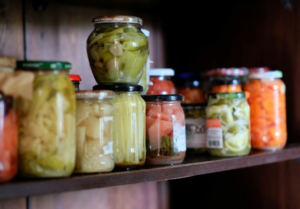
One of the most common health concerns is gut inflammation. Many people struggle with some level of gut inflammation but don’t realize it.
If you have diarrhea, bloating, and abdominal pain, you may have gut inflammation due to poor dietary choices. Learn more about the foods that cause inflammation below.
Signs of Gut Inflammation
Gut inflammation can manifest in numerous ways. Some people experience mild symptoms and don’t realize that their gut health is in jeopardy until things have progressed. Others experience sudden, severe symptoms that may signal significant gut health concerns.
Some of the most common signs that you may have gut inflammation include:
- Bloating
- Diarrhea
- Cramping
- Constipation
- Abdominal pain
- Loss of appetite
- Urinary tract infections
- Pain with bowel movements
- Bleeding with bowel movements
If you’re been evaluated by a doctor and they tell you that everything is “normal”, but you’re still struggling with symptoms, you should consider an evaluation by a Registered Dietitian that specializes is gut health. They can diagnose your gut inflammation and determine the underlying causes or contributing factors using comprehensive diagnostic tools.
Acute Inflammation vs. Chronic Inflammation
Gut inflammation can be acute or chronic. Acute gut inflammation is a short-term issue that can develop because of food poisoning, stomach viruses, or bacterial infections. This type of inflammation usually happens at the beginning of the healing process, which means that the inflammation will resolve on its own.
Chronic gut inflammation is ongoing and may indicate more serious digestive health concerns, such as inflammatory bowel disease or IBS. This type of inflammation leads to constant symptoms and issues that do not resolve on their own.
To address chronic gut inflammation, you may need medical intervention, a gut health evaluation and often nutrition and lifestyle changes.
Inflammatory Triggers
Gut inflammation occurs for a number of different reasons. Some common triggers of inflammation within the digestive tract include the following:
- Parasites
- Food allergies
- Viral infections
- Bacterial infections
- Poor dietary habits
- Genetic predisposition
While certain triggers like genetics may be unavoidable, you can still avoid other factors that contribute to gut inflammation. Dietary habits are the easiest trigger to identify and avoid.
Foods that Cause Inflammation
Certain foods are considered common triggers of gut inflammation. The following are just some of the foods most often linked to inflammation within the gut:
Refined Grains
Refined grains, such as white bread and breakfast cereals, are common trigger for gut inflammation. In the US, wheat can be sprayed with glyphosate, an herbicide, prior to harvest, making it highly inflammatory to our gut lining. This is due to glyphosate residues on food that could cause dysbiosis, an imbalance in the types of organisms in a person’s gut. Opportunistic pathogens are more resistant to glyphosate compared to commensal bacteria, perhaps facilitating this imbalance favoring the more harmful types of bacteria.
Processed Foods
Processed foods, including lunch meats, sugary snacks, and refined carbs like packaged cookies, potato chips, pretzels, and crackers, can contribute to inflammation within the gut.
Sweetened Drinks
Drinking a lot of sugary drinks, like sodas and sweetened fruit juices, can increase gut inflammation. Your harmful bacteria actually prefer sugar as their food source, so just know that if you’re treating a bacterial overgrowth, sugar will feed those guys you want to get rid of.
Fried Foods
Fried foods, like chicken tenders and onion rings, come with multiple negative health effects, including increased inflammation.
Alcohol
Heavy alcohol use over time can kill off the important bacteria needed for a healthy gut and can lead to damage within the GI tract and other organs.
Foods that Soothe Inflammation
Instead of eating a diet high in inflammatory foods, you can choose foods known to soothe and reduce inflammation. These soothing foods include:
- Fruits
- Vegetables
- Fermented foods
- Healthy fats
- Lean meats
To resolve chronic gut inflammation, you will likely need to make dietary changes. Swapping out common food triggers for foods that soothe inflammation can reduce your gut issues over time.
Gut Health Solutions at EverVital Nutrition
Are you struggling with symptoms of gut inflammation like diarrhea, cramping, or bloating? Gut inflammation is a common health concern that can be short-lived or chronic, depending on the underlying cause. Many people suffer from chronic gut inflammation due to poor dietary habits and bacterial overgrowth.
At EverVital Nutrition, we use specific diagnostic tools to determine your level of gastrointestinal inflammation. It’s a comprehensive gut microbiome test, including 3 inflammatory markers, rather than a guess.
To learn more about gut inflammation and get on the path to healing, contact us today.











